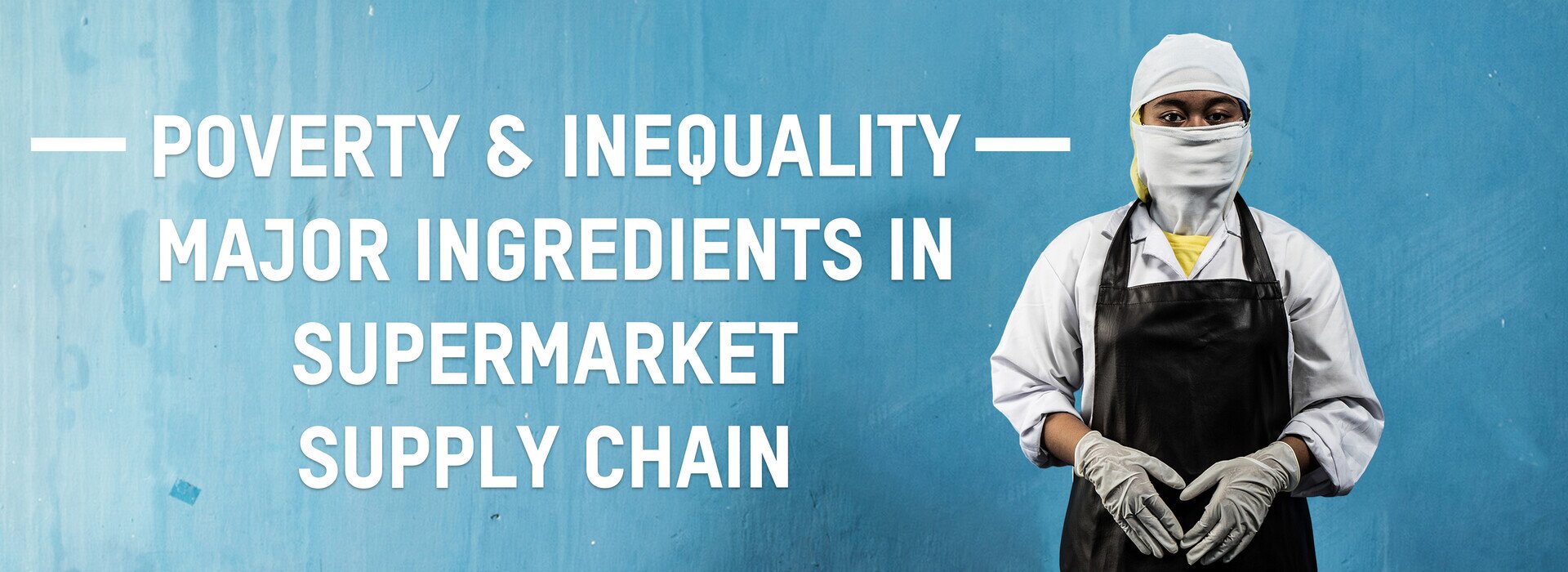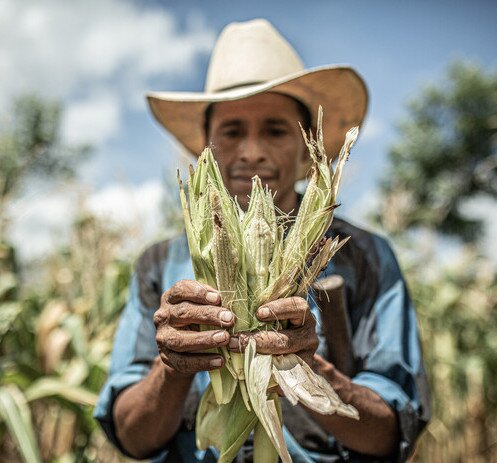Updated on 21 June 2018
The report, ‘Ripe for Change’, assesses the policies and practices of some of the biggest supermarkets in Europe and the United States – all of which score poorly on issues such as the treatment of workers and producers in their supply chains. The report reveals that millions of women and men who produce our food are trapped in poverty and face brutal working conditions, despite billion-dollar profits in the food industry.
Poverty and inequality: major ingredients in supermarket supply chains
Among the findings:
• Supermarkets keep an increasing amount of the money their consumers spend - as much as 50 percent in some cases - while the share that reaches workers and food producers has fallen - sometimes to less than 5 percent.
• Small-scale farmers and workers in the supply chains of 12 common supermarket products are scraping a living. For some products, such as Indian tea and Kenyan green beans, the average earnings of small-scale farmers or workers was found to be less than half of what was needed to ensure a basic but decent standard of living. The gap between a living income and actual income is greater where women make up most of the workforce.
• While many workers and smallholder farmers live in poverty, the eight largest publicly-owned supermarket chains generated nearly a trillion dollars in sales, $22 billion in profit, and returned $15 billion to shareholders in 2016. Just 10 percent of what the three biggest supermarkets in the United States returned to shareholders in 2016 would be enough to lift 600,000 Thai shrimp processing workers to a living wage.
• A five-country survey of workers and small-scale farmers revealed that the majority struggle to feed themselves and their families. In South Africa over 90 percent of surveyed women workers on grape farms reported not having enough to eat in the previous month, and in Italy 75 percent of women workers on fruit and vegetable farms said they, or a family member, had missed meals in the previous month because they could not afford sufficient food.
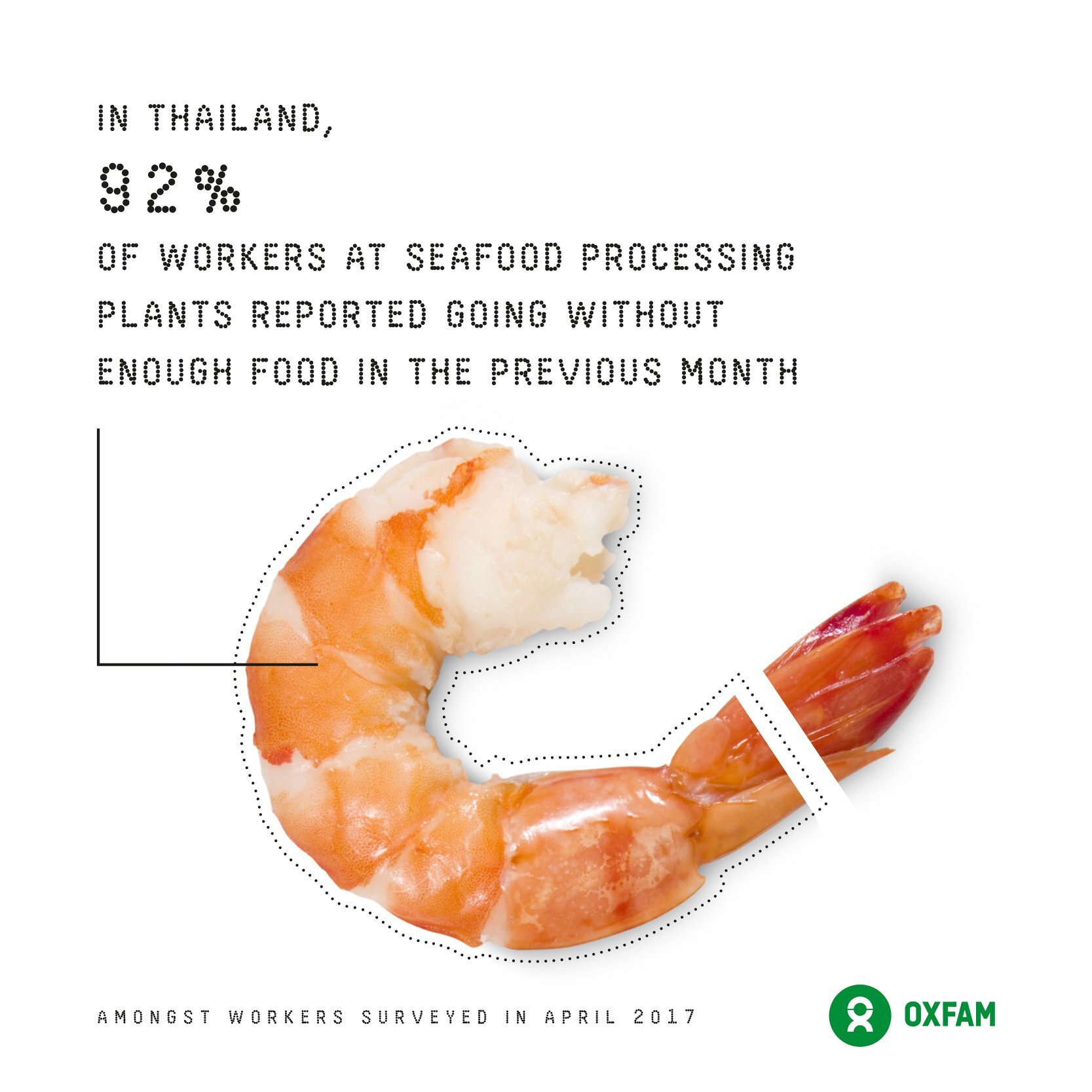
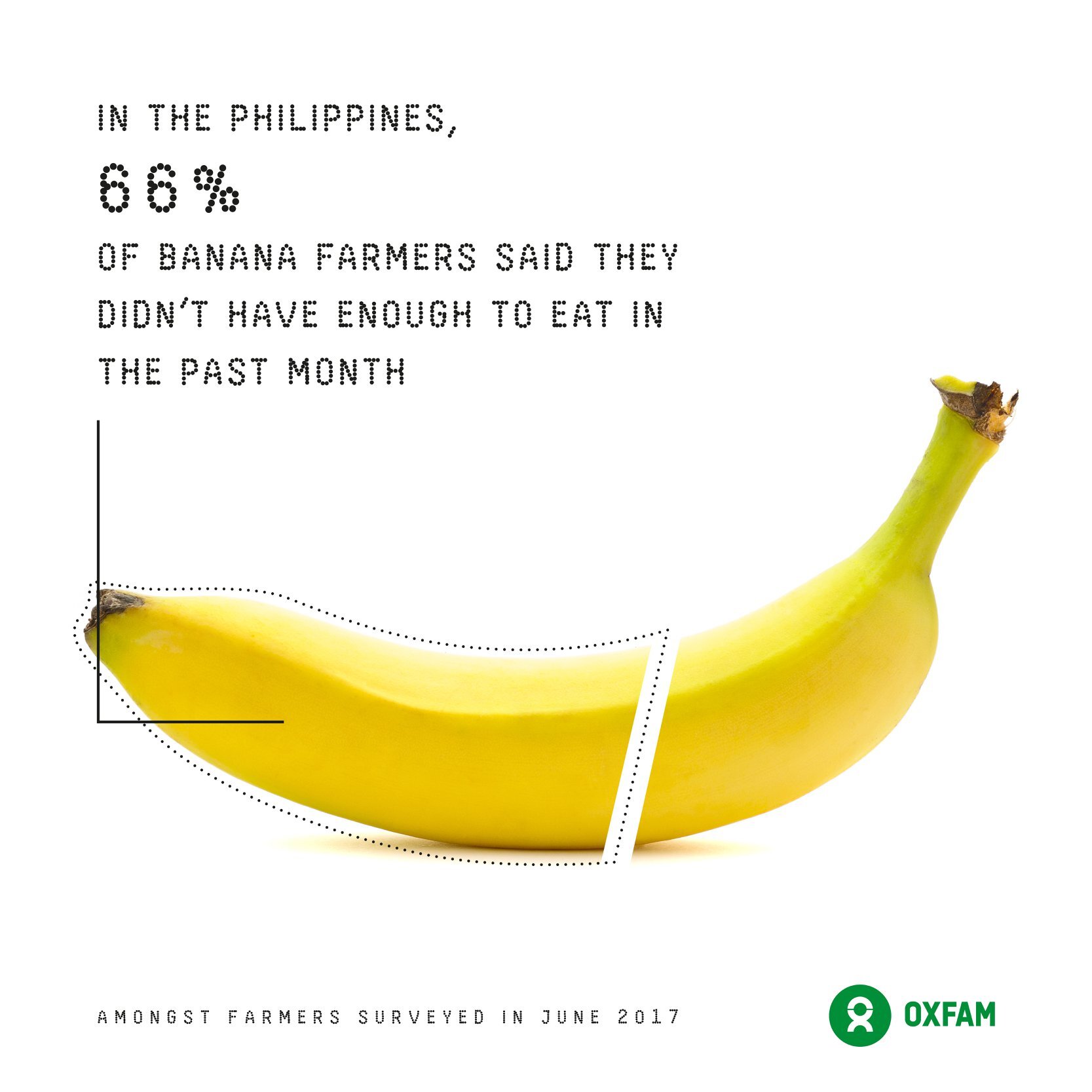
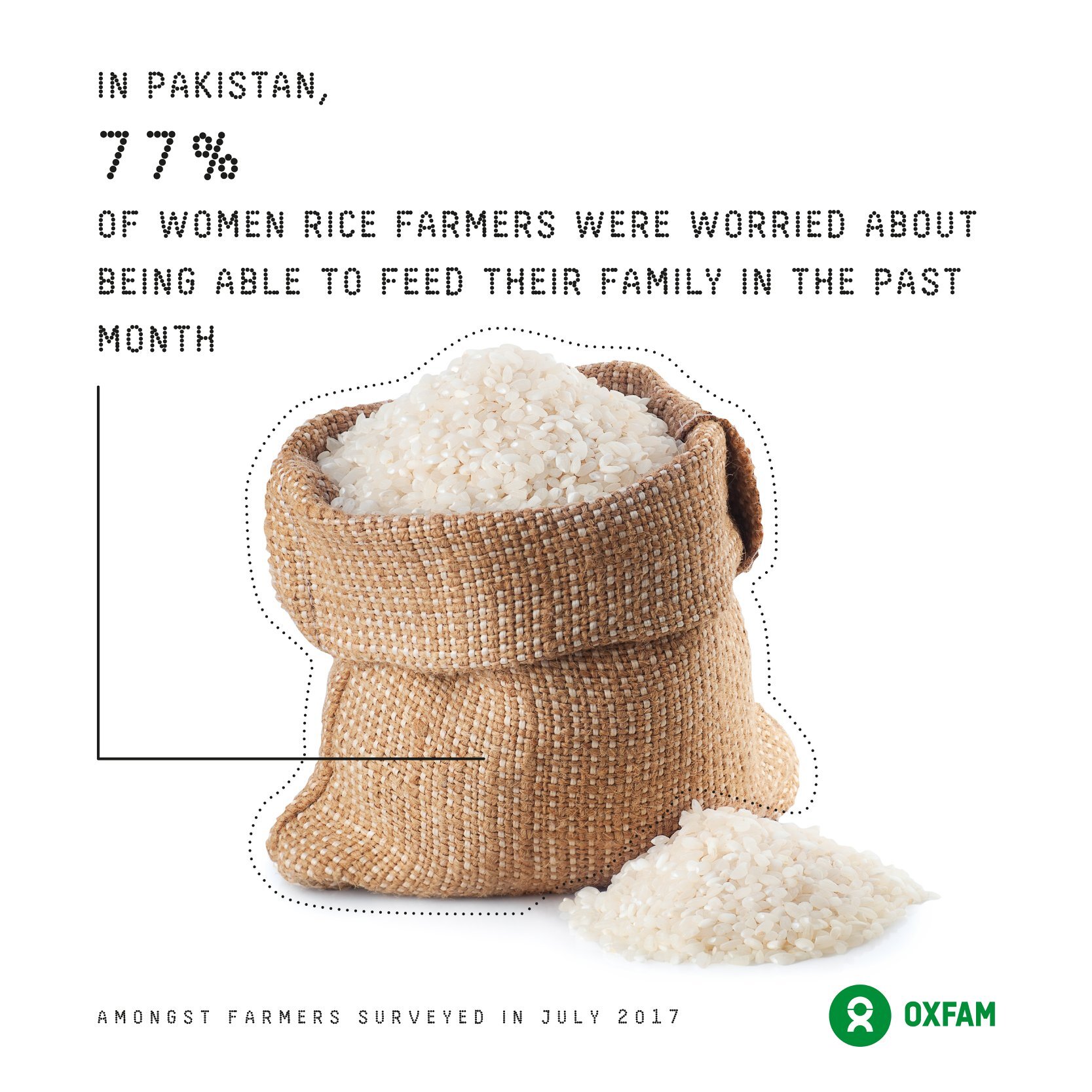
Winnie Byanyima, Oxfam International’s executive director, said: “We’ve heard from fruit farmers who have been sprayed with toxic pesticides while in the field and from women who have been forced to take pregnancy tests to work at seafood processing plants. This injustice should not be on store shelves, especially when the food industry generates billions of dollars and handsomely rewards shareholders and others at the top.”
The report also assesses the biggest and fastest growing supermarkets in Germany, the Netherlands, the UK and the U.S on their publicly available supply chain policies and reported practices. All 16 supermarkets score very low marks across all the issues including the transparency of their supply chains, and the treatment of workers, small-scale farmers and women in those chains. For example, all the supermarkets scored zero on supporting their suppliers to pay decent wages, and only four supermarkets scored above zero on empowering women in their supply chains by, for instance, incentivizing their suppliers to address gender inequalities.
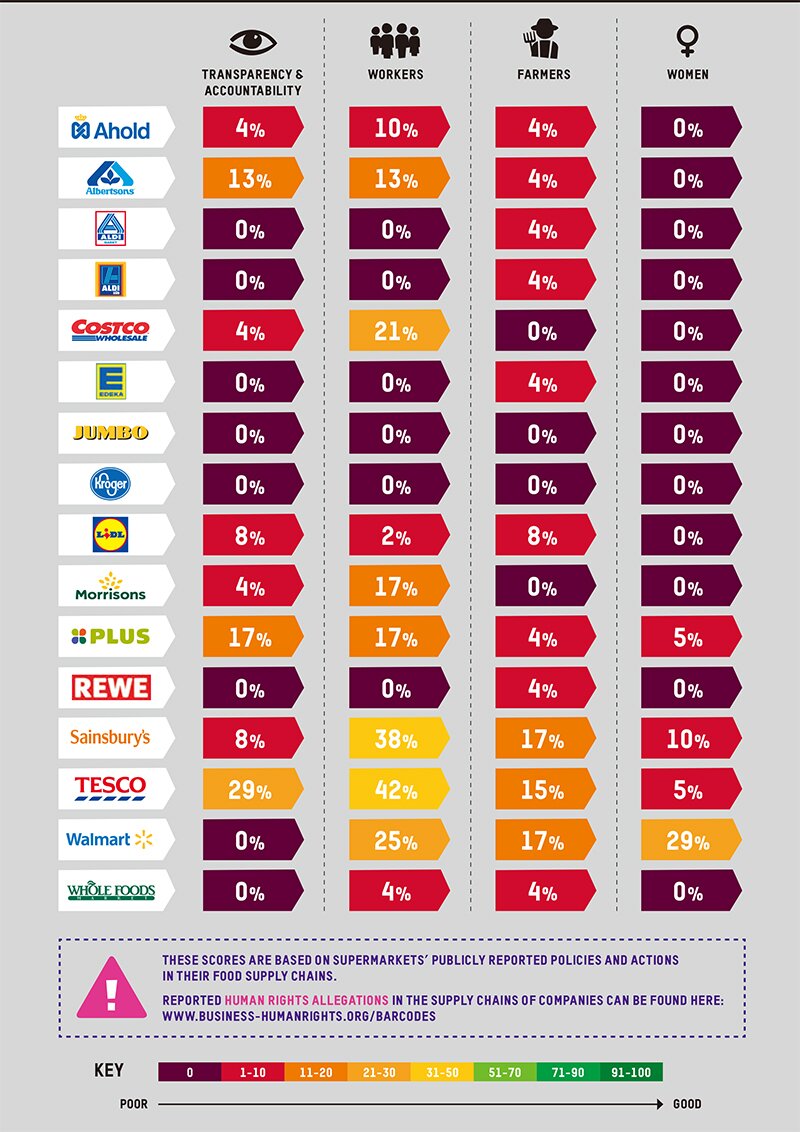
Labour exploitation in Seafood industry
Oxfam and the Sustainable Seafood Alliance looked in detail at working conditions at some of the biggest shrimp processors and exporters in Thailand and Indonesia, respectively, which supply some of the biggest supermarkets in the U.S. and Europe, including Ahold Delhaize, Aldi North and South, Lidl and Whole Foods among others. Workers described unsafe conditions, poverty wages, strictly controlled bathroom and water breaks, and verbal abuse. In Thailand, over 90 percent of seafood processing workers surveyed said they had not had enough to eat in the previous month. Around 80 percent of workers in these plants are women.
“When we were menstruating, we couldn’t change pads, because during work we couldn’t bring anything in,” said Melati, one of the tens of seafood factory workers interviewed by the Sustainable Seafood Alliance Indonesia. Melati also suffered chemical burns on her arms from having to clean with chlorine without adequate protection.
Oxfam is launching a new campaign to urge supermarkets and governments to crack down on inhumane working conditions, increase transparency about where our food comes from, tackle discrimination against women, and ensure a larger share of what consumers spend on food reaches the people who produce it.
"The private sector has the potential to lift millions of people out of poverty, but the food industry, like too many others, is rewarding wealth over women's work,” said Byanyima. “Supermarkets can afford to pay producers a fair price without burdening shoppers. In many cases, giving back just one or two percent of the retail price—a few cents-- would be life-changing for the women and men who produce the food on their shelves.”
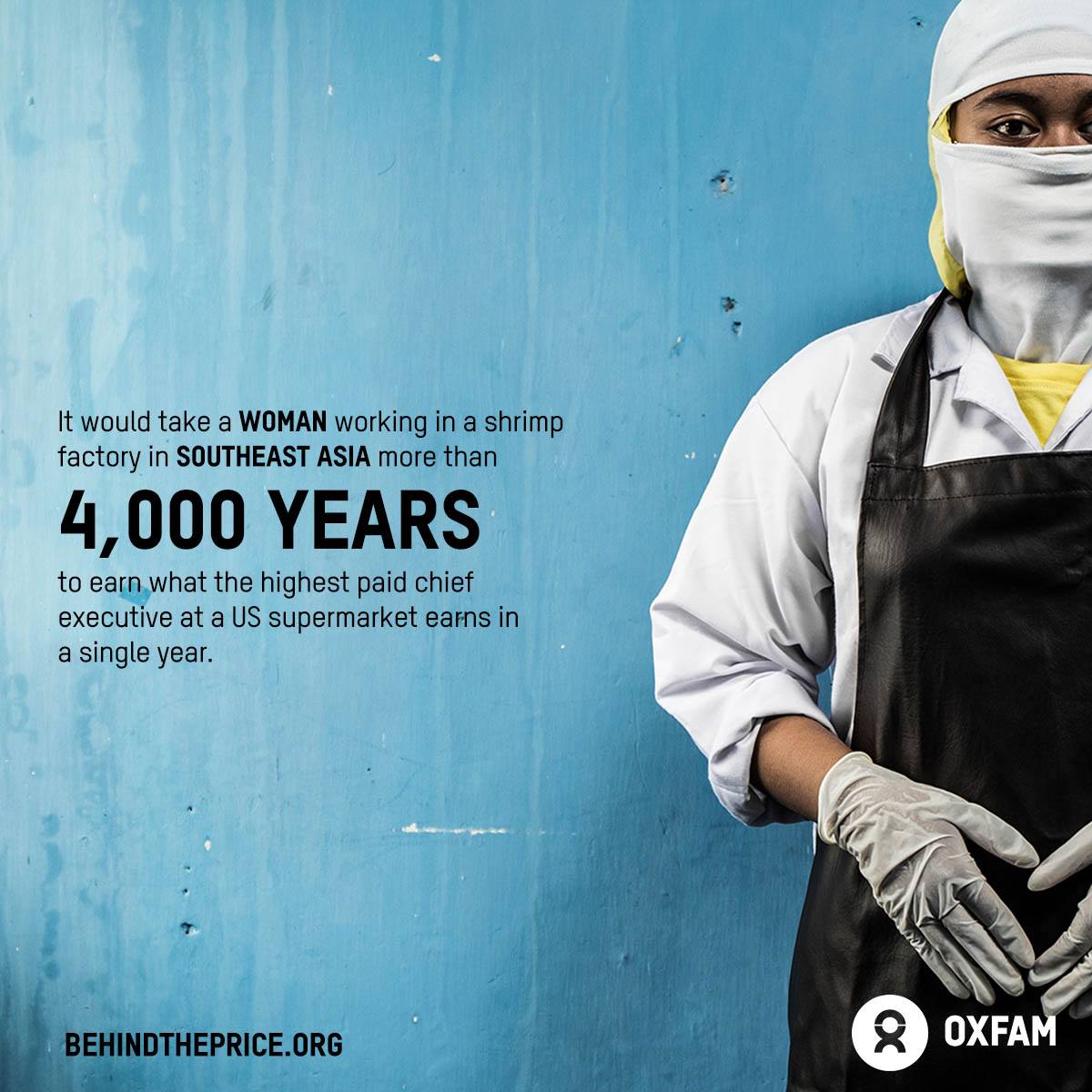
What's Behind the Price of your food?
know MORE ABOUT FOOD JUSTICE

